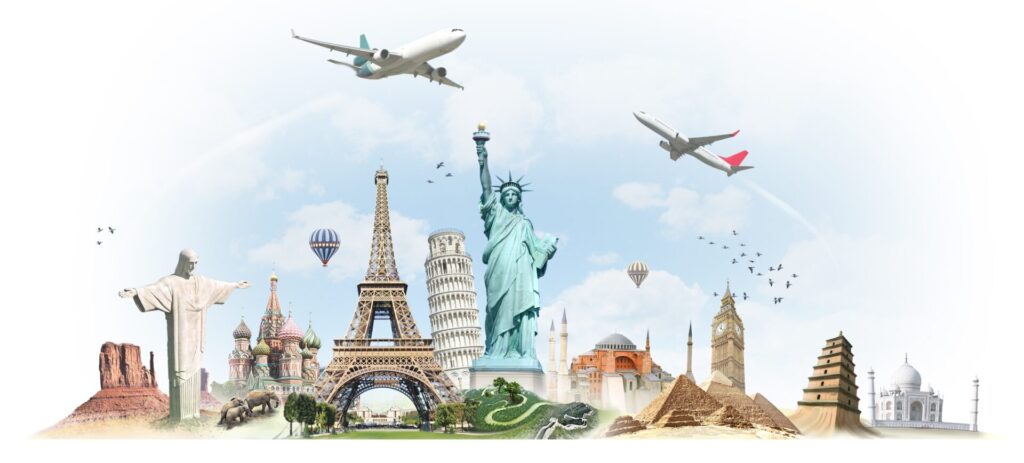
Travel is a central part of modern life, and it is one of the most frequently tested themes in the IELTS exam. Whether you are describing your daily commute, discussing the future of aviation, or analysing government investment in railways, IELTS Travel and Transport questions require strong vocabulary, balanced arguments, and cultural awareness. For Thai students, this theme is especially relevant, as international education and career opportunities increasingly depend on IELTS success.
IELTS in Thailand: Why Travel Matters
Over the past decade, IELTS Thailand has grown rapidly, with thousands of students taking the test each year. The British Council now runs exams almost weekly in Bangkok and other major cities, while ILC Hua Hin has become a registered test centre, making it easier for local students to sit the exam. Travel is not just a topic for the test but also a reality for many Thai learners who previously had to journey hundreds of kilometres to take the IELTS exam.
As IELTS 2025 approaches, more students are looking for regional preparation options. The rise of IELTS Hua Hin shows how IELTS Travel and Transport is not just a speaking or writing theme — it is also a reflection of real exam access in Thailand.
Writing Task 2: IELTS Travel and Transport Topics
In Writing Task 2, candidates often face questions about transport and development. For example:
-
Should governments build more motorways or improve public transport?
-
Do budget airlines bring more advantages than disadvantages?
-
Should countries invest in high-speed rail rather than airports?
Strong IELTS preparation means using accurate vocabulary: congestion, emissions, sustainable transport, fare, commute, shuttle. Candidates who can develop arguments with this vocabulary show the examiner they are confident discussing IELTS Travel and Transport themes at an academic level.
Speaking Part 2: Describing Journeys
Speaking tasks frequently include questions about journeys or favourite modes of transport. Candidates might be asked to describe a memorable trip, explain how they usually travel, or predict future transport systems.
Instead of a simple answer such as, “I travelled from Bangkok to Chiang Mai by train,” a stronger response would be:
“I took the overnight sleeper train from Bangkok to Chiang Mai. The journey was affordable and comfortable, and it gave me the chance to see Thailand’s mountains and countryside along the way.”
This level of detail shows fluency and descriptive ability. IELTS Travel and Transport topics give candidates the chance to demonstrate personal experience while applying advanced vocabulary.
Listening and Reading: Real-World Transport Contexts
Listening and Reading sections also feature IELTS Travel and Transport content. Candidates might hear an airport announcement, a bus timetable, or a conversation about booking a flight. Reading passages may focus on traffic congestion in large cities, the history of rail travel, or the impact of tourism on transport infrastructure.
Students should practise scanning for key details such as times, dates, and numbers, while also building vocabulary around itinerary, reservation, baggage claim, arrivals hall, departure lounge. These are common terms in IELTS Travel and Transport tasks and are essential for achieving higher scores.
Vocabulary for IELTS Travel and Transport
The British Council vocabulary list provides useful phrases for travellers. For IELTS preparation, the key is to practise these words in real IELTS exam contexts. For example:
-
“The shuttle bus provided a reliable transfer from the airport.”
-
“We booked our accommodation in advance to avoid high-season fares.”
-
“Traffic congestion has become a serious problem in major cities.”
Incorporating these expressions into essays, speaking practice, and listening exercises will help candidates handle IELTS Travel and Transport questions with confidence.
Preparing in Hua Hin for IELTS 2025
With IELTS Hua Hin now offering both exams and preparation, students in Prachuap Khiri Khan and nearby provinces no longer need to travel to Bangkok. The IELTS Exam Mastery Course at ILC Hua Hin gives candidates structured training in writing, speaking, listening, and reading. Full programme details can be found in the IELTS brochure.
For students aiming at IELTS 2025, the message is clear: start your IELTS preparation early, practise vocabulary regularly, and focus on high-frequency themes such as IELTS Travel and Transport.
Conclusion
IELTS Travel and Transport is more than just a test topic — it reflects the real journeys Thai students make towards education and career opportunities abroad. With IELTS Thailand expanding access, IELTS Hua Hin providing local exams, and tailored IELTS courses available, candidates have every reason to prepare now. Success in IELTS 2025 will depend on structured preparation, confident vocabulary use, and a deep understanding of IELTS Travel and Transport across all four skills.






